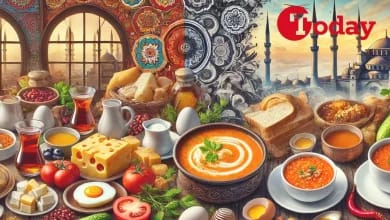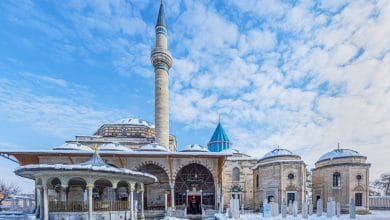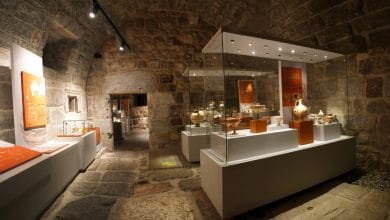‘Touching’ carpet art at Hagia Sophia highlights Gaza’s struggles
A Powerful Artistic Reminder of Gaza’s Struggles on Display at Hagia Sophia Square
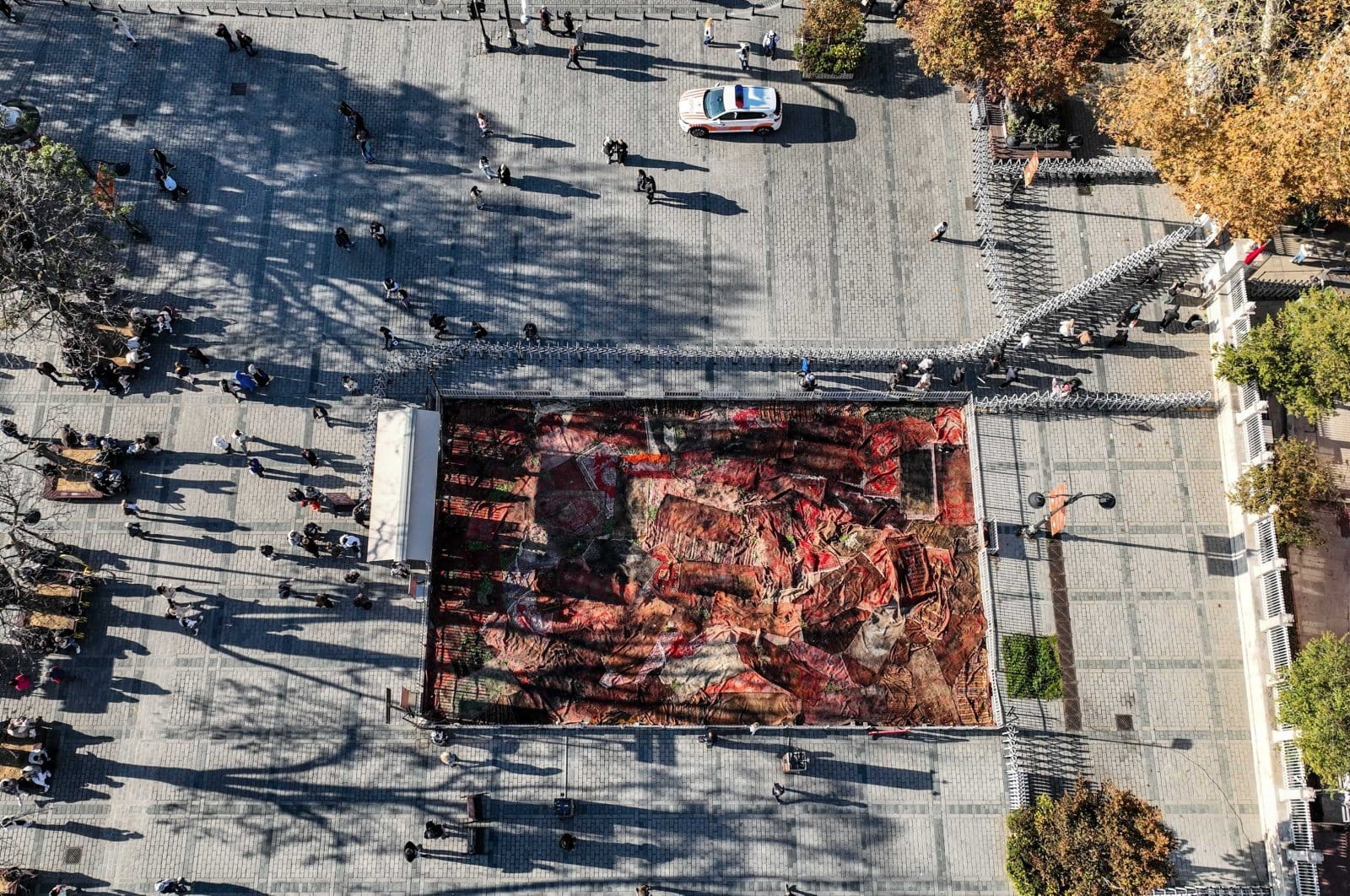
The “Touching” carpet installation by the Culture Civilization Foundation (Küme) draws attention to the ongoing crisis in Gaza and Palestine. Displayed at Hagia Sophia Square, this powerful art installation aims to bring the plight of Gaza to the forefront for both local and international visitors. Running until the end of November, the exhibition features works that evoke the images of destroyed carpets in Palestinian homes, offering a poignant reminder of the human cost of war.
Serhat Kula, the artistic director of Küme, explained that the installation uses carpets as a metaphor for both the land of a homeland and the warmth of a home. “Just as a country’s land is a symbol of peace, carpets within homes represent the sanctuary of that peace. Carpets are not only physical objects but also symbols of memory, family and community,” he stated. Many of the carpets in the installation were sourced from Anatolia and the Balkans, regions with deep historical and cultural connections to the Middle East.
Kula emphasized that the carpets in the installation were intentionally recreated to look like they had been pulled from a war zone. “We wanted to evoke the feelings we often don’t experience through images on our screens. This installation provides an opportunity to feel the emotional depth of those images,” he said. The carpets, meticulously handcrafted using traditional techniques, are more than just decorative items; they represent a link between the past and the present, telling the story of longing, struggle and shared humanity.
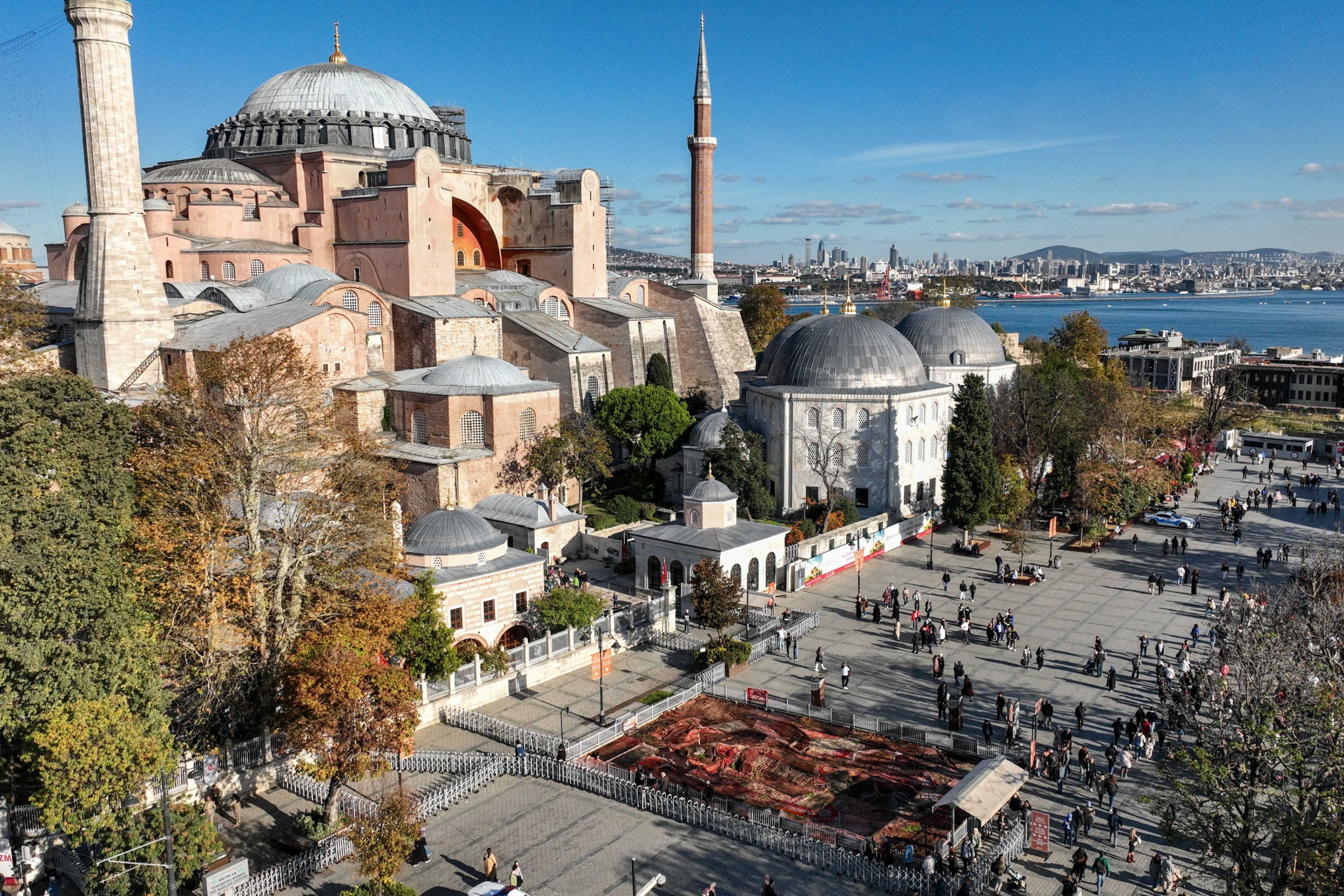
Gaza’s pain reflected
The installation is not only an artistic expression but also a statement of solidarity with Gaza. By placing the work in Hagia Sophia Square, a major historical crossroads in Istanbul, the installation aims to reach a broad international audience. Kula noted that the exhibit effectively symbolizes Türkiye’s stance on Gaza, conveying the country’s sorrow and concern for Palestine. “This art piece is a visual manifestation of Türkiye’s empathy for Gaza,” he explained.
The installation consists of 105 handmade carpets covering an area of 300 square meters. Many of these carpets are over a century old, dyed with natural root-based colors. These carpets blend traditional craftsmanship with contemporary art, created by a team of eight artists who worked for 25 days to complete the installation.
Carpet as a cultural artifact
Murat Kösemen, the curator of the “Touching” installation, pointed out the special significance of the carpet in Turkish and broader Eastern cultures. “The carpet is one of the most distinct cultural objects separating Turkish and Western cultures. There is nothing comparable in the West,” he explained. He emphasized that the carpet is not just a domestic item but a symbol of shared history and human connection. “The carpet is the first point of contact in spatial sharing. It is the place where we come together, share our meals, our joy and sorrow,” Kösemen said.
In addition to its cultural significance, the carpet also serves as a medium of communication. “Each motif tells a story,” Kösemen noted. “The emotions, struggles and joys of the weaver are embedded in the design. Today, the carpets of Gaza have been touched by war, just as our own might one day be.”
Kösemen also discussed the troubling normalization of violent images in the media. “Images of violence from Gaza have become so common that they are increasingly ignored,” he said. The artists behind the installation wanted to shift the perspective by invoking a familiar, intimate object – the carpet.
“By using carpets, we hoped to connect the viewer’s own home with the devastation in Gaza. If these carpets, symbols of our home and safety, can be destroyed, perhaps tomorrow, our own sacred spaces will be at risk,” he said.




